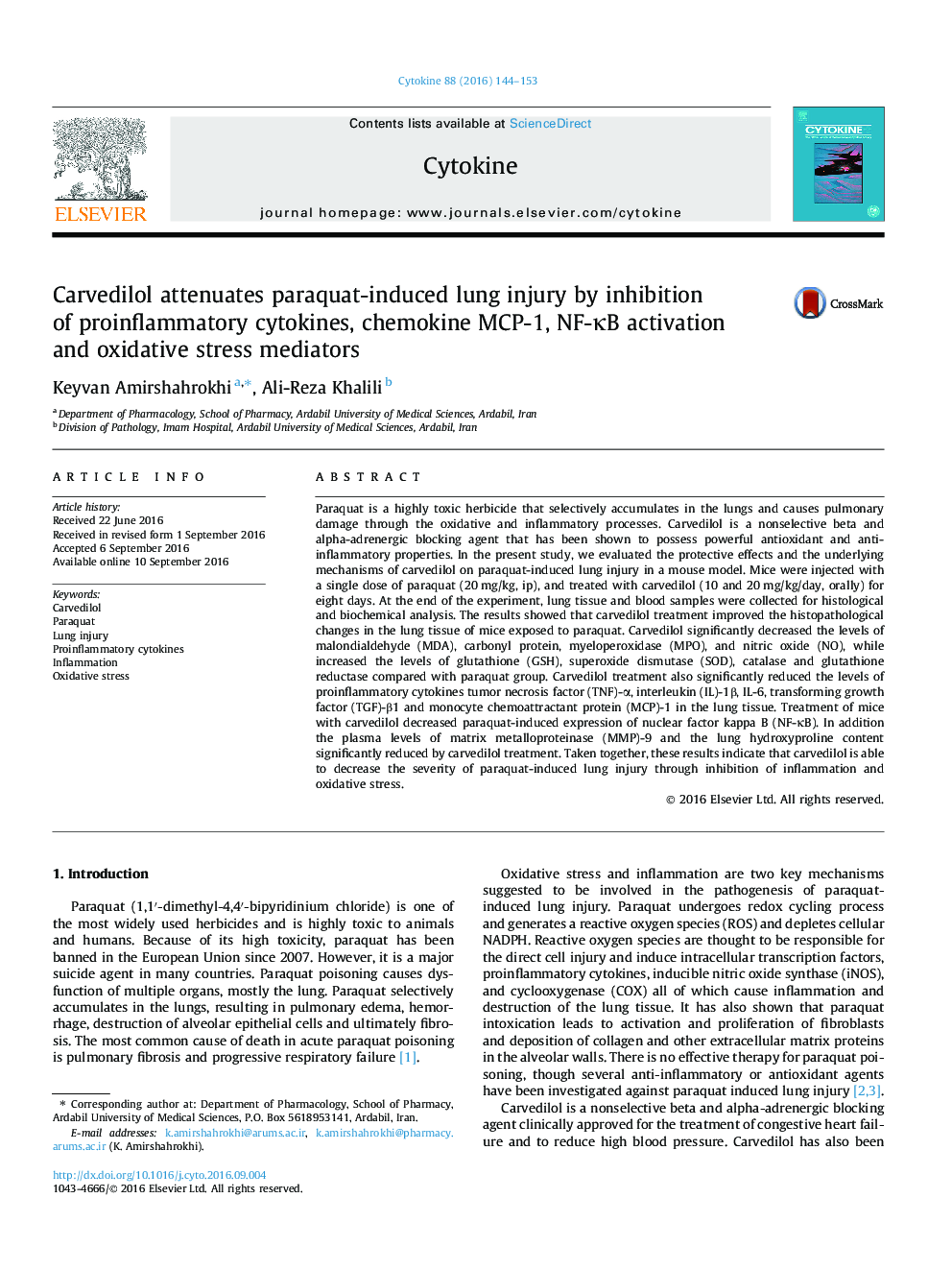| کد مقاله | کد نشریه | سال انتشار | مقاله انگلیسی | نسخه تمام متن |
|---|---|---|---|---|
| 5896603 | 1568724 | 2016 | 10 صفحه PDF | دانلود رایگان |

- Carvedilol treatment attenuated the paraquat-induced lung injury in mice.
- The levels of GSH, SOD, CAT and GR were increased by carvedilol treatment.
- Carvedilol decreased paraquat-induced MDA, carbonyl protein, MPO and NO levels.
- TNF-α, IL-1β, IL-6, TGF-β1 and MCP-1 levels were decreased by carvedilol treatment.
- Carvedilol reduced the level of NF-κB mRNA in the lungs of mice exposed to paraquat.
Paraquat is a highly toxic herbicide that selectively accumulates in the lungs and causes pulmonary damage through the oxidative and inflammatory processes. Carvedilol is a nonselective beta and alpha-adrenergic blocking agent that has been shown to possess powerful antioxidant and anti-inflammatory properties. In the present study, we evaluated the protective effects and the underlying mechanisms of carvedilol on paraquat-induced lung injury in a mouse model. Mice were injected with a single dose of paraquat (20 mg/kg, ip), and treated with carvedilol (10 and 20 mg/kg/day, orally) for eight days. At the end of the experiment, lung tissue and blood samples were collected for histological and biochemical analysis. The results showed that carvedilol treatment improved the histopathological changes in the lung tissue of mice exposed to paraquat. Carvedilol significantly decreased the levels of malondialdehyde (MDA), carbonyl protein, myeloperoxidase (MPO), and nitric oxide (NO), while increased the levels of glutathione (GSH), superoxide dismutase (SOD), catalase and glutathione reductase compared with paraquat group. Carvedilol treatment also significantly reduced the levels of proinflammatory cytokines tumor necrosis factor (TNF)-α, interleukin (IL)-1β, IL-6, transforming growth factor (TGF)-β1 and monocyte chemoattractant protein (MCP)-1 in the lung tissue. Treatment of mice with carvedilol decreased paraquat-induced expression of nuclear factor kappa B (NF-κB). In addition the plasma levels of matrix metalloproteinase (MMP)-9 and the lung hydroxyproline content significantly reduced by carvedilol treatment. Taken together, these results indicate that carvedilol is able to decrease the severity of paraquat-induced lung injury through inhibition of inflammation and oxidative stress.
Journal: Cytokine - Volume 88, December 2016, Pages 144-153